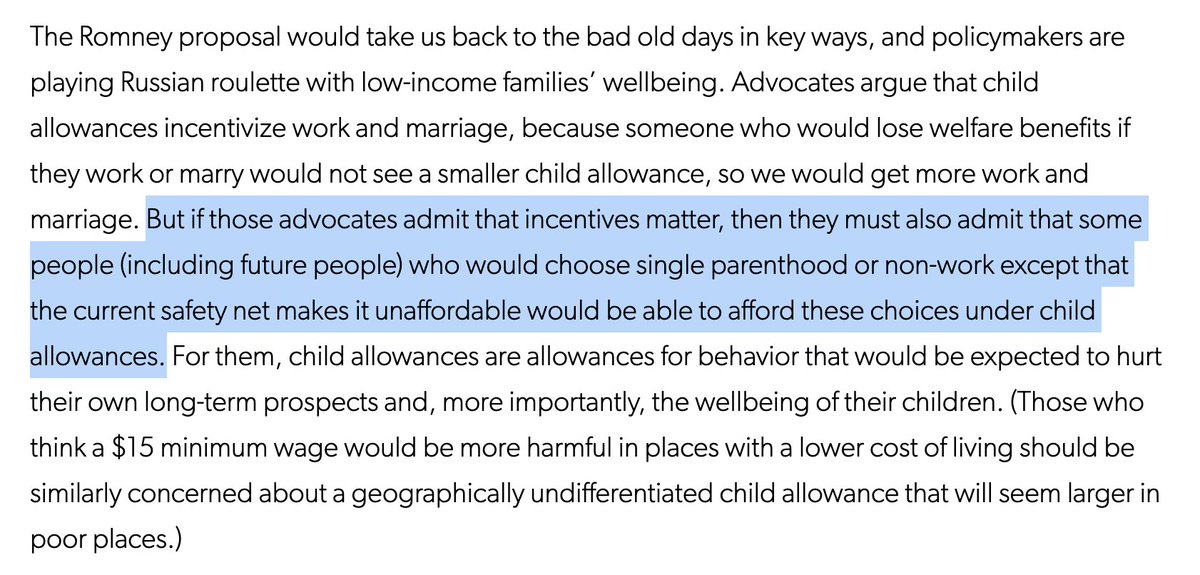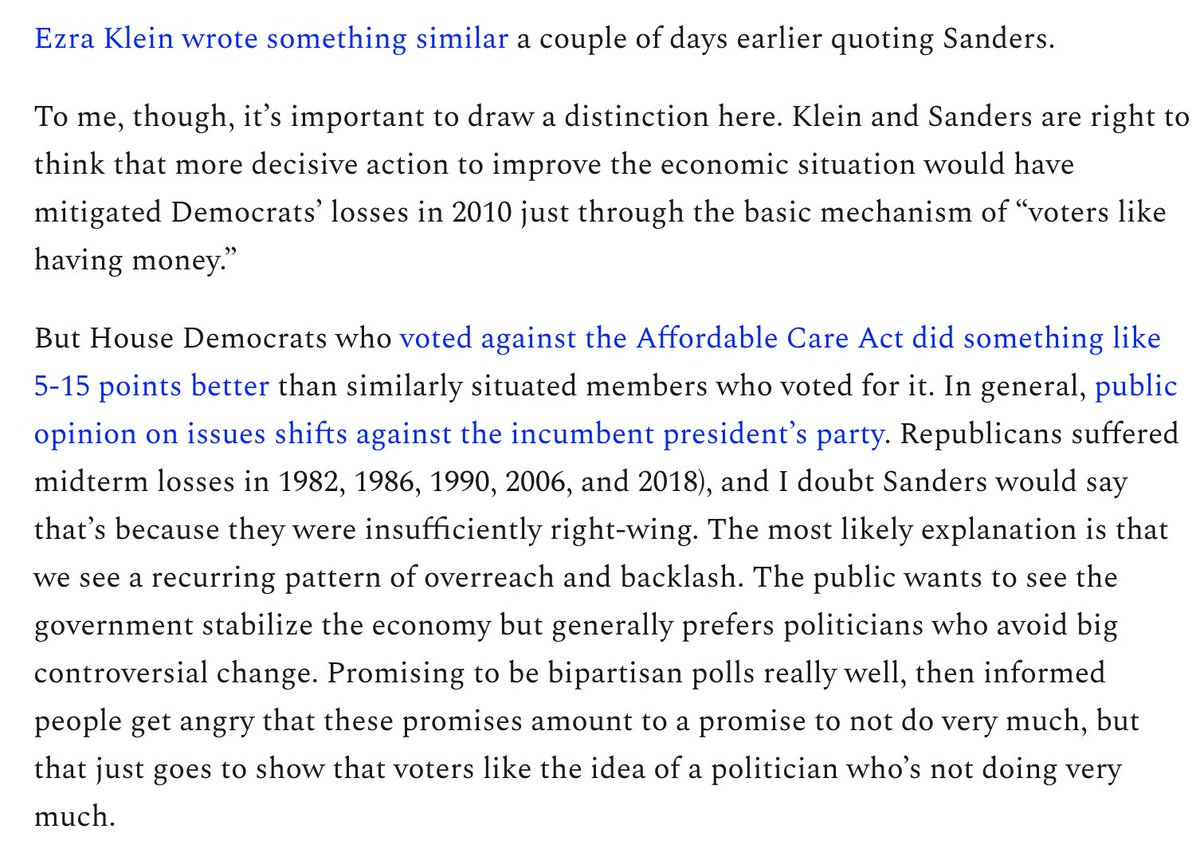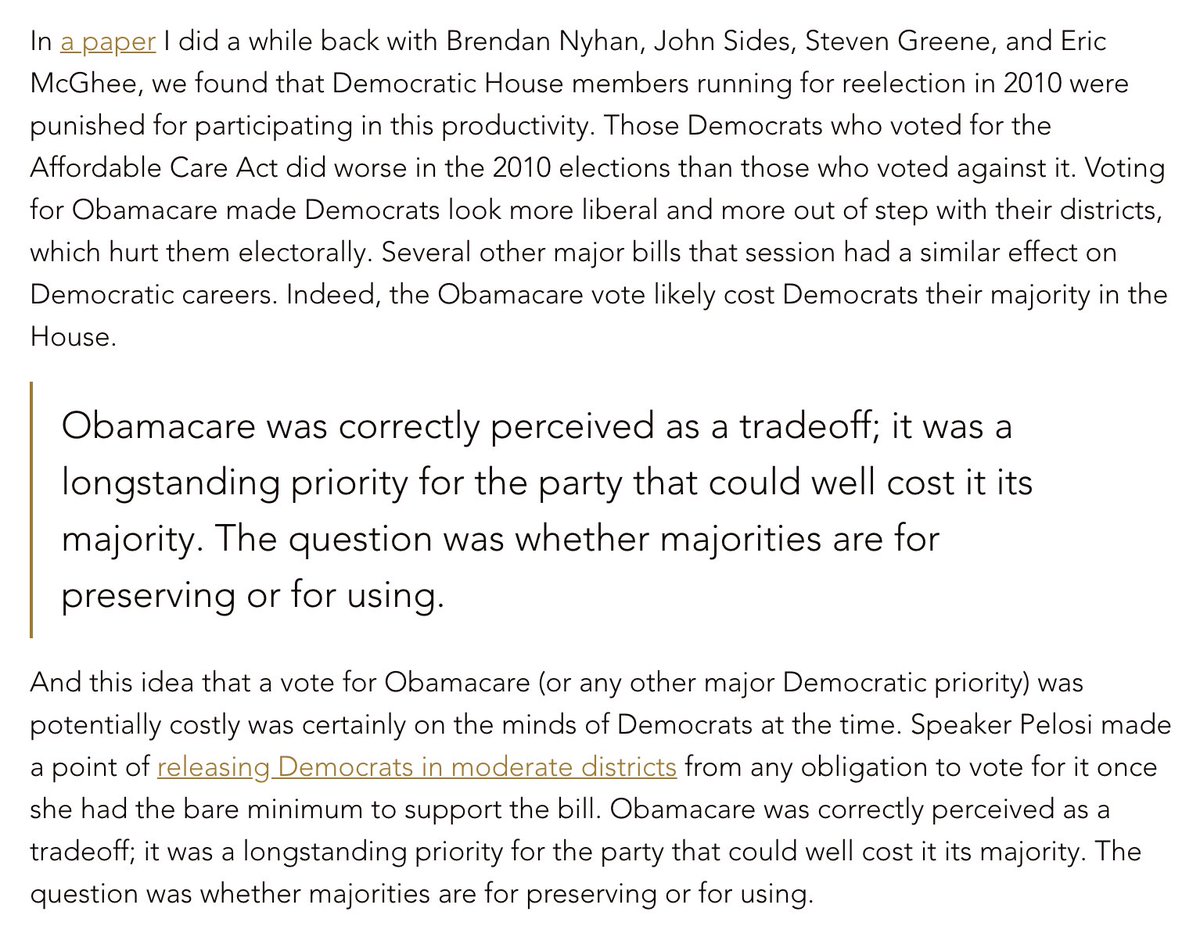
We talk about liberal and conservative bias, but status quo bias is at the root of many of our problems. The worst institutional failures, the most immoral policies, survive because “that’s just how we do things.”
Which brings me to the US Senate. nytimes.com/2021/02/04/opi…
Which brings me to the US Senate. nytimes.com/2021/02/04/opi…
Dems are moving forward with budget reconciliation, because Manchin, Sinema, and likely others, refuse to get rid of the filibuster.
“Budget reconciliation.” It sounds sober, important and official. It's a disaster, and it has become the main way the Senate passes big bills.
“Budget reconciliation.” It sounds sober, important and official. It's a disaster, and it has become the main way the Senate passes big bills.
Budget reconciliation layers a bad process atop a broken process. To counter the minority’s abuse of the filibuster rule, the majority abuses another rule — the budget reconciliation rule — in a way that makes legislation systematically and undeniably worse for all of us.
I get into the details of how it works in my column today, but in this thread, I want to pull out a bit of how it warps what kind of legislation the Senate considers, and the way that legislation is designed — for the worse.
Budget reconciliation wipes out legislative provisions that aren’t primarily spending and taxing. So you can do $1,400 checks, but not emergency paid leave. You can expand Medicaid subsidies, but you can't tell insurers to cover preexisting conditions.
https://twitter.com/taragolshan/status/1357107886078459907
You're writing legislation, in other words, without the full tools normally available to legislators. The cost of budget reconciliation is poorly designed legislation, and that's a cost the Senate, as an institution, has decided we should pay.
This thing where Republicans keep passing massive tax cut packages that expire after 10 years, leading to cliffs and constant uncertainty? That's budget reconciliation. It's led to repeated, multi-trillion $$ tax packages that are written to simply vanish on a certain date.
Budget reconciliation means there’s a 60 vote hurdle for, say, automatic voter registration, or gun control, but only a 51-vote hurdle for cutting taxes on the rich or boosting the EITC. It biases the Senate away from anything non-budgetary.
“Why should it only take a simple majority to do tax cuts for the rich but it takes a supermajority to address the integrity of our elections?” @SenJeffMerkley told me. “That makes no sense. Access to the ballot shouldn’t have a higher hurdle than helping the rich get richer.”
I don’t want to get into the weeds on how many budget reconciliation packages you can do a year here, but suffice to say, not many, so it pushes the Senate towards these massive omnibus bills that, as @adamjentleson told me, weaken committees and are a “field day for lobbyists.”
Democrats could simply ignore the parliamentary rulings and widen what could go through budget reconciliation, and I’ve heard from Senate staff who think that’s what they’ll do. But then why not just get rid of the filibuster?
The repeated use of budget reconciliation —both of Trump's major legislative pushes (Obamacare repeal and tax cuts) used it, and the first major push under Biden will too — shows that even the filibuster’s supporters know a 60-vote Senate doesn’t work.
I want to say this clearly: Though it is the self-styled moderates, like Manchin and Sinema, who freeze the institution in dysfunction, there is nothing moderate about the way the Senate now works: It is radical in its inanity, and terrible in its consequences.
Only the worst form of status quo bias could make these kludges seem preferable to actually rewriting the Senate’s rules in a sensible way. No one would ever, ever design a legislative chamber to work this way. It’s only status quo bias that lets so many accept it now.
There’s much more in the piece. But I’ll end here where I end there. I’d prefer Democrats use reconciliation, as Republicans do, if they won’t get rid of the filibuster. But this is a terrible way to legislate. Just end the filibuster. nytimes.com/2021/02/04/opi…
• • •
Missing some Tweet in this thread? You can try to
force a refresh







